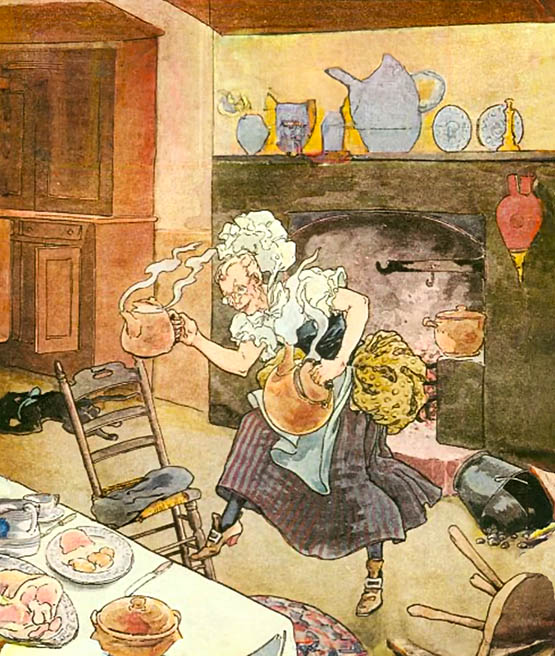There Was an Old Woman, and What Do You Think?
There was an old woman, and what do you think?
She lived upon nothing but victuals and drink;
Victuals and drink were the chief of her diet,
And yet this old woman could never be quiet.

Origins
Printed in the early 19th century, this verse sits beside other brief “old woman” pieces in nursery collections. The “old woman” was a stock figure of the period—comic, cranky, exaggerated on purpose. Short line. Quick smile. On to the next rhyme.
 The Rhyme
The Rhyme
The joke is tautology. She lives on “victuals and drink,” which is just food and drink—life’s basics. Yet she “could never be quiet.” Children enjoy the bounce and repetition. Adults hear a sly wink at fidgety tempers and constant chatter.
Meaning and Use
It’s a play-chant rather than a story. A filler verse for the nursery—something to recite while settling a room, clapping hands, or turning a page. Like many brief pieces, it pokes gentle fun at stock characters: busy old women, foolish old men, greedy animals. Light satire, quick rhythm, memorable in a single read.